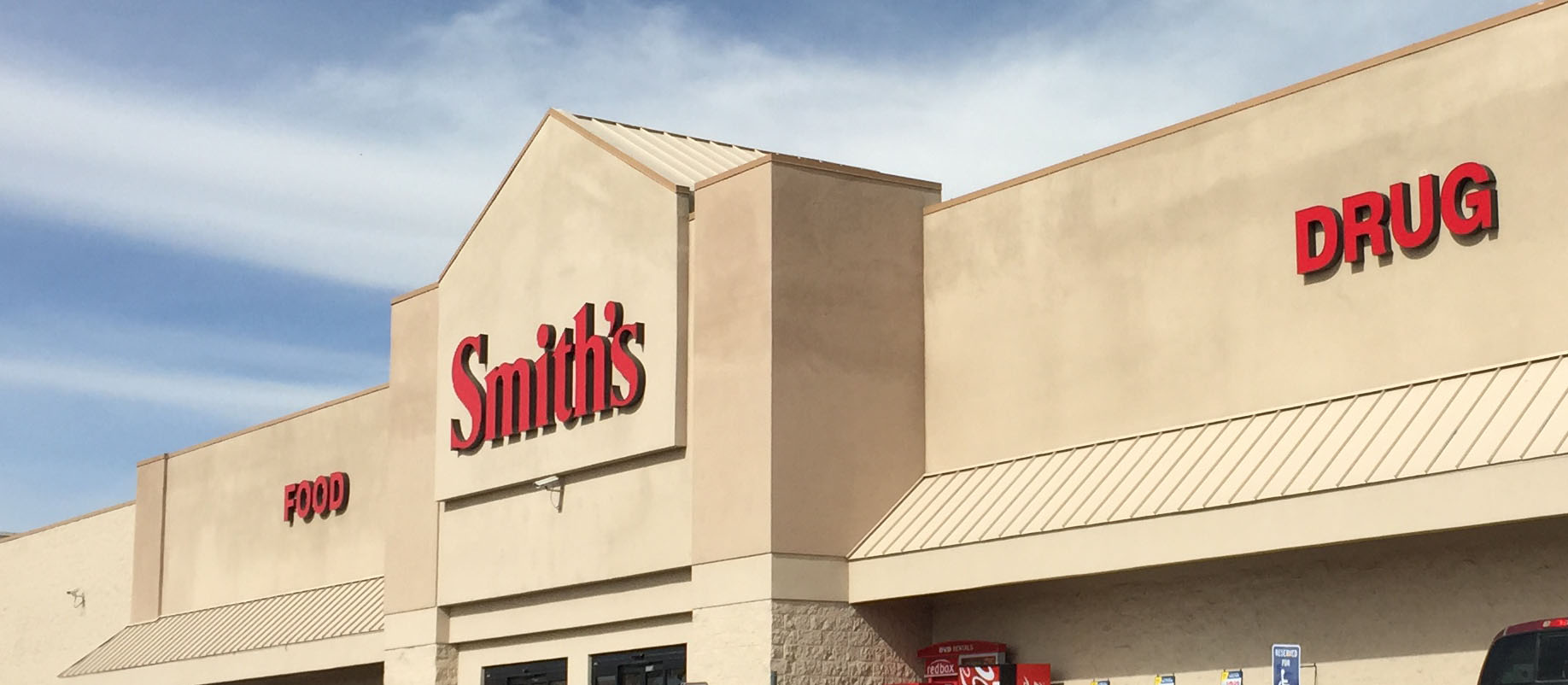
In 2019, Smith’s Food and Drug stores (part of the Kroger grocery empire) stopped accepting Visa Credit Cards as a payment method, citing high credit card processing fees.
This ban made big waves in the retail merchant account world, and signaled Kroger’s intention to negotiate a reduction in Visa’s portion of those processing fees.
In 2020, after a long standoff, Visa credit cards have finally returned as a payment option for Smith’s/Kroger customers.
Does this mean the negotiations worked in Kroger’s favor?
Here is an overview of the situation.
What Drove Kroger’s Decision to Ban Visa Credit Cards?
Put simply: a heightened cost of doing business was at the root of Kroger’s ban.
Grocery stores tend to have razor thin margins in order to remain competitive. Increased merchant account costs, such as credit card processing fees, inherently drive the grocery prices up.
Visa credit cards are involved in over 70%, on average, of consumer credit card transactions. A merchant (such as a Smith’s/Kroger grocery store) must pay a processing fee whenever a customer uses a credit card.
And while Mastercard, American Express, and Discover all entail similar processing fees, Visa’s majority market share means the vast bulk of a Kroger’s credit card processing fees come from Visa transactions.
Kroger’s decision to stop accepting Visa was a strategic one aimed at mitigating these fees, so as to maintain margin and remain competitive.
But Kroger’s goal was never to ban Visa long-term.
Kroger’s goal was to force Visa to the negotiating table, and achieve a reduction in their processing fees.
Was this a Good Idea?
This is a risky move for any merchant.
Many Visa credit card holders might not be willing to use a different form of payment, or may not have access to an alternative. These customers might have been motivated to shop elsewhere during the ban.
It had the potential of being a customer-relations nightmare.
Did the ban put a significant dent in grocery sales? Only Kroger knows for sure.
For most merchants, this would NOT be the recommended course of action.
It is rare for a retailer, or any business, to ban Visa in particular. Again, a large portion of the credit card-using buying public is comprised of Visa credit card users…many of whom make purchases exclusively via those credit card to take advantage of points and rewards.
Moreover, very few companies are large enough to leverage a negotiation directly with Visa.
Clearly, Kroger was able to ignite that conversation. And, one might suppose, Kroger had thoroughly done their homework prior to instigating the ban. It is likely they knew exactly how many of their customers might be pushed toward competitors as a result.
But that doesn’t mean the ban was Kroger’s best option.
For most merchants, there are much easier ways to optimize one’s credit card processing fees.
What are Credit Card Processing Fees?
Credit Card Processing Fees are the fees paid to various entities involved in the credit card payment process.
When a customer pays with a credit card at a Smith’s Food and Drug location, Smith’s/Kroger must yield a percentage of that payment to the entities that make the transaction possible.
These fees are what allow Kroger (and all merchants) to accept the credit card payment in the first place, and are a common cost of doing business.
Can Credit Card Processing Fees be Negotiated or Reduced?
In most cases, yes they can. But first, one must understand that Visa is not the only entity involved in levying merchant account fees when a Visa card is swiped.
They only get a portion of it. And a relatively small one, at that.
So, while Kroger focused on negotiation directly with Visa, they were only able to address or reduce that portion.
Again, other entities are involved.
A merchant like Kroger has its most direct merchant account relationship with the Processor … an acquiring bank responsible for collecting the payment from the customer’s card, on the merchant’s behalf.
But the Processor isn’t in control of the entire fee structure either.
Merchants seeking to reduce fees can certainly negotiate or even change Processors, but this is often futile and time-consuming, sometimes costly, and doesn’t address the full scope of fees.
The most thorough method for reducing merchant account fees is to engage with a seasoned merchant account auditor, who will pursue and implement fee reductions with ALL involved parties.
Whether Kroger had significant room to lower their Visa-related fees is not publicly known, but their efforts were satisfactory enough to ultimately lift the Visa ban.
Who Are the Other Recipients of a Merchant’s Credit Card Processing Fees?
Visa or MasterCard (which are defined as credit card brands or “Networks”) only get a small percentage of the merchant account fees: roughly 5% of the total fee amount.
The entities involved in the merchant account fee structure are:
- The Issuing Bank: the organization that issued the credit card to the shopper or customer
- The Network: Visa, MasterCard, AmericanExpress, Discover Card
- The Acquiring Bank: the bank that processes the payment funds on behalf of the merchant
- The Processor: the entity that connects the merchant with the above infrastructure
And here is how the fees are typically distributed:
- 80% to the Issuing Bank
- 5% to the Network
- 5% to the Acquiring Bank
- 10% to the Processor
To put it another way, let’s suppose a merchant has a total annual credit card processing volume of $100,000,000. If the merchant’s overall effective rate (the total percentage of the credit card volume that goes toward merchant account fees) is 3%, the merchant would be paying $3,000,000 in fees. And those fees would be distributed thusly:
- $2,400,000 – to the Issuing Bank
- $150,000 – to Visa or MasterCard, etc.
- $150,000 – to the Acquiring Bank
- $300,000 – to the Processor
The largest portion, which goes to the Issuing Bank, is called the Interchange fee and is often considered to be set in stone … but this would be a misconception. It can be lowered.
As can the other fees.
Did Kroger Achieve All Available Fee Reductions?
In all likelihood, no.
It’s possible that, beyond a public standoff with Visa, Kroger also made some effort to reduce Interchange and other related fees that are outside of Visa’s purview.
However, most merchants, even large entities such as Kroger, do not have the in-house expertise needed to adjust their merchant accounts properly, in order to optimize something as complex as the Interchange fee structure.
Most likely, Kroger left this money on the table.
What Can be Done to Reduce Credit Card Processing Fees?
The difficulty lies in the complex nature of the various credit card processing fee structures, and from a deliberate lack of transparency.
First of all, not every Processor lists the fees in the same way. And some fees are combined, or mislabeled, in ways that can be confusing to the average merchant. Even identifying the fees is a challenge.
The reason for this is simple: the entities that benefit from your credit card processing fees do not want you to understand your statement. They certainly have a responsibility to be competitive within the industry, but they profit more if their fees are difficult to comprehend.
For that reason, the only truly effective way to lower merchant account fees is to engage with an experienced audit firm who will be able to quickly identify areas in which the merchant is overpaying, and who will undertake the complicated steps of optimizing the account in any way that proves impactful.
Often, and preferably, this is done without the need to change the merchant’s Credit Card Processor.
About Verisave:
Verisave is a merchant account audit firm headquartered in Salt Lake City, with 17 years experience in analyzing credit card processing statements and in implementing strategies that reduce clients’ merchant account fees by 25-35% or more, without switching processors. Verisave operates on a gain-share basis rather than on consultancy fees, and closely monitors clients’ statements after implementation.

